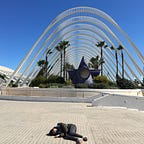In practice of unoptimized life
During this time of stress and fear, I decided to take a weird approach. Rather than rushing and trying out all the solutions, I decided to sit with my problems a bit longer through living a slow and unoptimized life.
Digital Minimalism
I realized one of the biggest problems I have in San Francisco is information overload. Every day, my social and digital life is flooded with AI development and new product launches. Yes, I do learn a lot every day, but I start to find it hard to breathe and rest. So I read digital minimalism and readjust my information consumption.
Maximalist philosophy that most people deploy by default — a mindset in which any potential for benefit is enough to start using a technology that catches your attention. A maximalist is very uncomfortable with the idea that anyone might miss out on something that is the least bit interesting or valuable.
Minimalists don’t mind missing out on small things; what worries them much more is diminishing the large things they already know for sure make a good life good.
I adopted the minimalist perspective. To block the feelings of urgency and “I’m behind,” I blocked all the potentially overwhelming information.
- No Twitter and LinkedIn about the OpenAI developer summit
- Delete most social media on my phone, including Gmail, LinkedIn and Messenger. (I don’t use Instagram, Twitter, or WhatsApp often)
- Minimize calls and hang out with friends or startup people who might create potential pressure for me (aka people who are stressed about their jobs or lives).
Reconnect with the real world
I used to start the laptop all the time because I felt that I needed to keep doing something to keep myself going. I ended up burning out from working too much and feeling information overwhelmed. After my London trip, I learned the importance of being in contact with the real world.
“Oh, she says well, you’re not a poor man. You know, why don’t you go online and buy 100 envelopes and put them in the closet?
And so I pretend not to hear her. And go out to get an envelope because I’m going to have a hell of a good time in the process of buying one envelope.
I meet a lot of people. And, see some great looking babes. And a fire engine goes by. And I give them the thumbs up. And, and ask a woman what kind of dog that is. And, and I don’t know…And, of course, the computers will do us out of that. And, what the computer people don’t realize, or they don’t care, is we’re dancing animals. You know, we love to move around. And, we’re not supposed to dance at all anymore.”
Since I want to cut down my spending anyway, I no longer trade money for speed. I tried to stop thinking about my next goal, my next month, but focusing on the present, only thinking about my next 10 minutes. I became much more present. I started to spend time cooking for my friends. I chopped the shallots slowly, listening to the sounds of simmering. I don’t order books from Amazon but went to a bookstore to read. I stopped sinking on the sofa with my laptop, knowing there were a lot of things to worry about in the future, but not now.
Live an unoptimized life to give myself space
With digital minimalism and real-world connection, I live a slow and unoptimized life, giving my space time and space to rest, so I can be grounded again.
When we focus too hard on being a little better every day, we destroy the ability to be inspired. When I first started writing online, I felt a lot of pressure to do things the “right” way.
Now, I run this newsletter poorly. There is no rhyme or reason behind my topic selection; my tweets are riddled with spelling errors; the courses I teach are challenging to find…Despite that (or for the sake of my argument, because of it), my work was read over 1 million times last year.
But my success has also happened because I’ve given myself space. I ignore all the extra things I’m “supposed to do” that I mentioned above so I can pursue something called “afflatus.” Afflatus is a Latin word that refers to a sudden rush or inspiration, seemingly from the divine or supernatural. Moments of afflatus are euphoric and intoxicating. When they occur and I create output, I always end up happier.
I’m not advocating for a lifestyle of ease and no work. I work so, so hard to make this writing happen every week. There are always late nights and sacrifices. What I’m arguing for is the cultivation of a state of being to allow for afflatus to occur.
I don’t know if this space I’m creating will give me more inspiration for my problems or not. All I know is, that neither fight nor flight is a good method to resolve the problems I have. I am a poor strategist when I rely on my System 1. In the face of fear and uncertainty, I don’t know what to do nor can I think of good solutions anyway. Why rush to figure things out? I want to sit with my emotions first and start to think of solutions later.
Overall, digital minimalism is to stop information overload, a sense of urgency, and inadequacy, while focusing on real-life experience and slow life pace is to give me time and space to think, relax, and be present. This might be the first time in my life that I give myself this much time and space. Let’s see how will this experiment evolve.
Note: This post is inspired by In Defense of the Unoptimized Life by EVAN ARMSTRONG.
